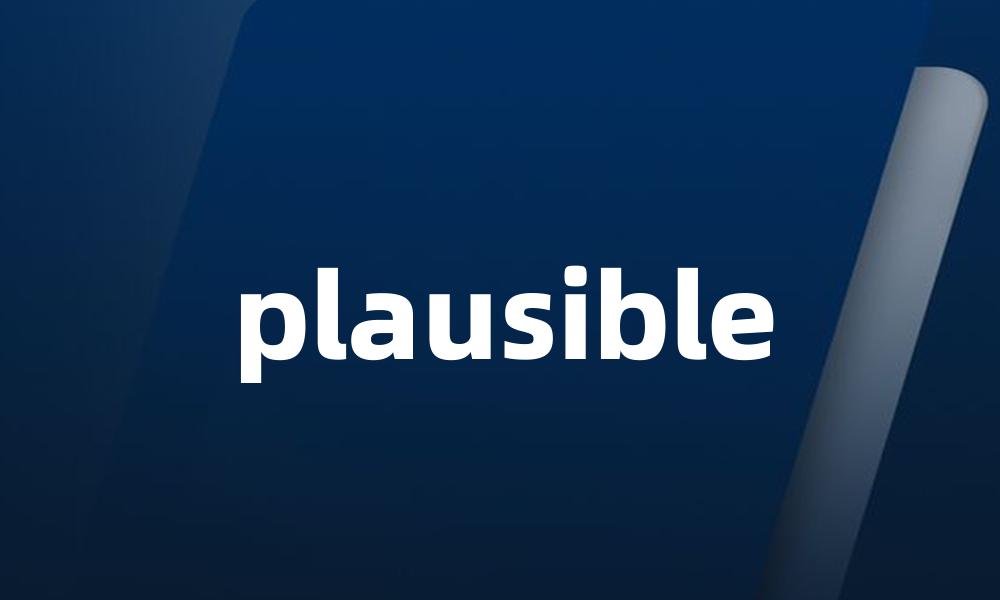
词汇概述
“plausible”是一个形容词,表示“似乎合理的”或“有道理的”。在某些情况下,它也可以用作名词,尽管这种用法较少见,通常是在特定的学术或专业环境中。
词语辨析
“plausible”常用于描述理论、解释或说法是否合理或可信。与“likely”(可能的)和“credible”(可信的)等词汇相比,“plausible”更强调表面上的合理性,而不是实际的可能性。
词汇扩充
- plausibility(名词):似然性,合理性
- implausible(形容词):不太可能的,不合理的
近义词
- credible
- believable
- likely
反义词
- implausible
- unlikely
- incredible
典型词典定义
根据柯林斯词典,“plausible”指的是“看似合理或可信的,特别是在某种情况下”。牛津词典则强调其含义为“似乎合理或可信的”,并指出它常用于描述解释或说法。
用法
在使用“plausible”时,通常用于形容某种解释、观点或理论的合理性。它可以用在日常交流中,也可以在学术写作中出现。
例句
-
The detective found the suspect's alibi to be plausible.
侦探发现嫌疑人的不在场证明是合理的。
-
Her explanation seemed plausible at first glance.
她的解释乍一看似乎很合理。
-
While the theory is plausible, it lacks substantial evidence.
虽然这个理论是合理的,但缺乏实质证据。
-
He offered a plausible solution to the problem.
他提出了一个合理的解决方案。
-
The witness provided a plausible account of the events.
证人提供了一个合理的事件描述。
-
Her story was plausible, but I still had my doubts.
她的故事很合理,但我仍然心存疑虑。
-
Many scientists find the new hypothesis plausible.
许多科学家认为这个新假说是合理的。
-
It is plausible that the increase in temperature is due to climate change.
温度上升是由于气候变化而造成的,这种说法是合理的。
-
The plan seemed plausible until it was critically examined.
这个计划看起来是合理的,直到经过严格审查。
-
Her argument was plausible, yet it did not convince everyone.
她的论点很合理,但并没有说服所有人。
-
He presented a plausible theory that explained the phenomenon.
他提出了一个合理的理论来解释这一现象。
-
The professor's lecture included many plausible examples.
教授的讲座包括许多合理的例子。
-
Despite its plausible nature, the idea was ultimately rejected.
尽管这个想法很合理,但最终还是被拒绝了。
-
The critic found the film's plot to be plausible yet predictable.
评论家认为这部电影的情节是合理的但却可以预测。
-
In a debate, providing plausible evidence is crucial.
在辩论中,提供合理的证据是至关重要的。
-
His theory was dismissed as implausible by many experts.
他的理论被许多专家视为不合理的。
-
She tried to make her argument more plausible by citing studies.
她试图通过引用研究来使她的论点更合理。
-
The plausible explanation helped resolve the issue quickly.
这个合理的解释帮助迅速解决了问题。
-
His story was so implausible that no one believed him.
他的故事如此不合理,以至于没有人相信他。

 小皮
小皮